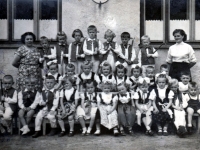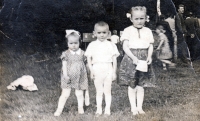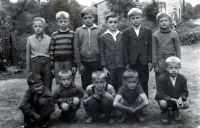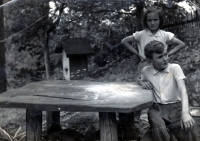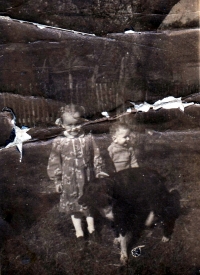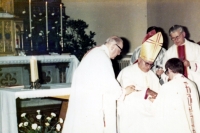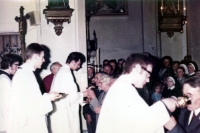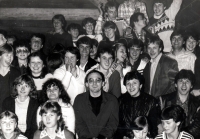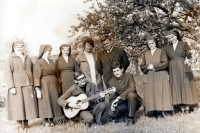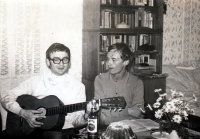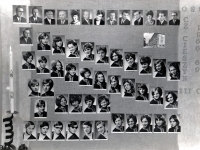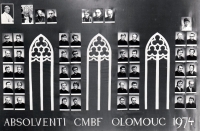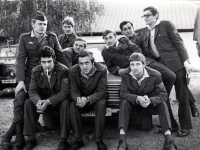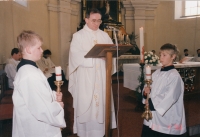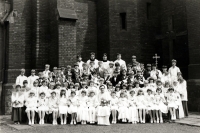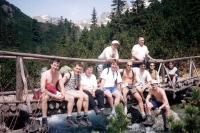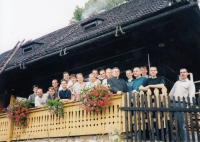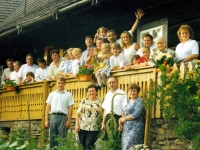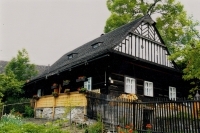If your consciousnes is clear you can sleep on a rock

Download image
Adam Rucki was born on January 8th 1951 in the village of Bukovec in Slezské Beskidy. His father was a farmer. Together with other farmers from the village for years he had been refusing to join the coop. The Collective farm in Bukovec had been founded only after the 1970. In 1969 Adam Rucki began to study at the temporarily reopened Sts Cyril and Methodius Faculty of Theology in Olomouc. After being ordained in 1974 he had to attend the mandatory military service. As a politically unreliable person he had been ordered to the labour battalion building bomb shelters at airports. After the military service he was a chaplain in Havířov, Frýdek and then in Třinec for seven years. In 1984 he was arrested as he was ogranising private bible studies lectures for young people. He has been given suspended sentence. For a year and a half he couldn´t work as a priest and had been making his means as a worker. Until the collapse of the totalitarian regime he served in Valašské Klobouky, then he was a priest in the Zlín region. For ten years he was a lecturer at the Archbishop’s seminary in Olomouc. Since 2005 he is a vicar in the Diocese of Ostrava-Opava.
